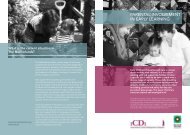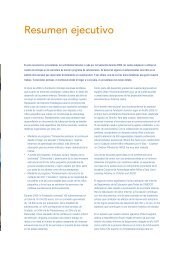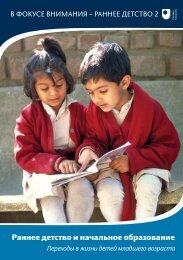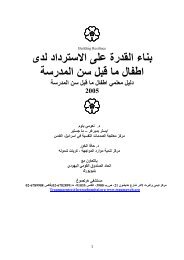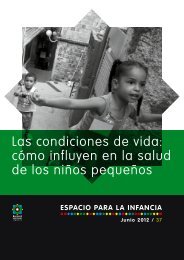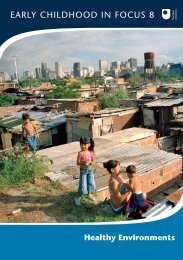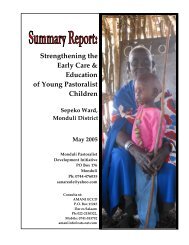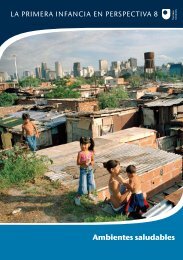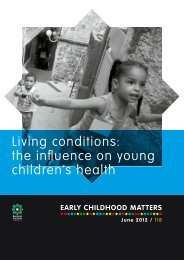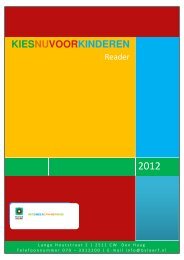Report - Bernard van Leer Foundation
Report - Bernard van Leer Foundation
Report - Bernard van Leer Foundation
You also want an ePaper? Increase the reach of your titles
YUMPU automatically turns print PDFs into web optimized ePapers that Google loves.
3.2 Policy Context in Tanzania3.2.1 ‘Education For All’ Goal No. 1: Early Childhood Care & EducationIn April 2000, the government of Tanzania committed to the Dakar Framework forAction to achieve the six ‘Education for All’ (EFA) goals (see Appendix 3: EFAGoals). Significantly, the first of these goals focuses on comprehensive EarlyChildhood Care and Education (ECCE), for children 0 – 8 years, as the importantfoundation of all other goals. The essential philosophy of EFA Goal No. 1 is that‘Learning Begins at Birth’, and the foundation for success in formal education are laidin the years BEFORE children enter school. As detailed in Table 3, EFA Goal No. 1sets a very comprehensive framework for evaluating and planning for improvedquality of care and education of young children in family, community and morestructured contexts, especially those who are already disad<strong>van</strong>taged. Therefore, thedetails of this goal have been used as a guide by the consultants in designing andcarrying out this research, as well as framing the recommendations.Table 3: The Dakar Framework for Action: Education for All: April 2000Goal No. 1: Expanding and improving comprehensive early childhood care and education,especially for the most vulnerable and disad<strong>van</strong>taged children.All young children must be nurtured in safe and caring environments that allow them to become healthy, alert,and secure and be able to learn.Good quality early childhood care and education, both in families and in more structured programmes, havea positive impact on the survival, growth, development and learning potential of children.Early Childhood Care & Education Programmes should…‣ be comprehensive, focusing on all of the child's needs andencompassing• health• nutrition and hygiene• cognitive• psycho-social development.‣ be provided in the child's mother tongue‣ help to identify and enrich the care and education of childrenwith special needs.‣ be achieved though partnerships between• governments,• NGOs• communities and• families‣ include activities• centred on the child,• focused on the family,• based within the community• supported by national, multi-sectoral policies andadequate resources.Who is responsible?Governments across rele<strong>van</strong>t ministries,have the primary responsibility for‣ formulating early childhood careand education policies within thecontext of national EFA plans,‣ mobilizing political and popularsupport, and‣ promoting flexible, adaptableprogrammes for young childrenthat are appropriate to their ageand not mere downwardextensions of formal schoolsystems.‣ The education of parents andother caregivers in better childcare, building on traditionalpractices, and the systematic useof early childhood indicators areimportant elements in achievingthis goal.10




